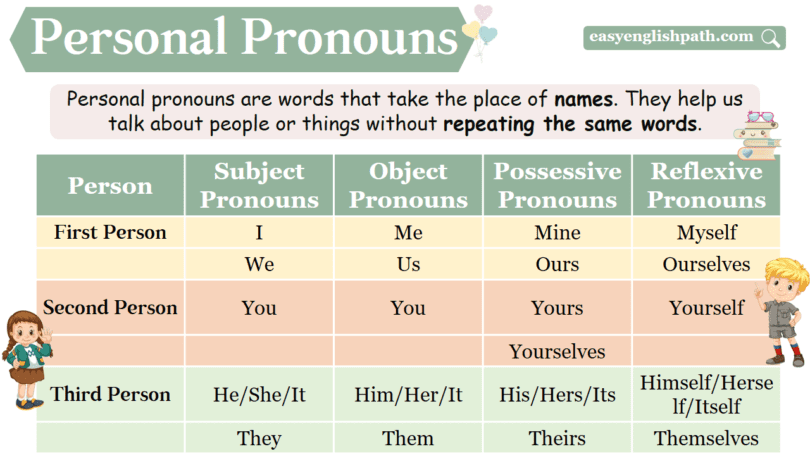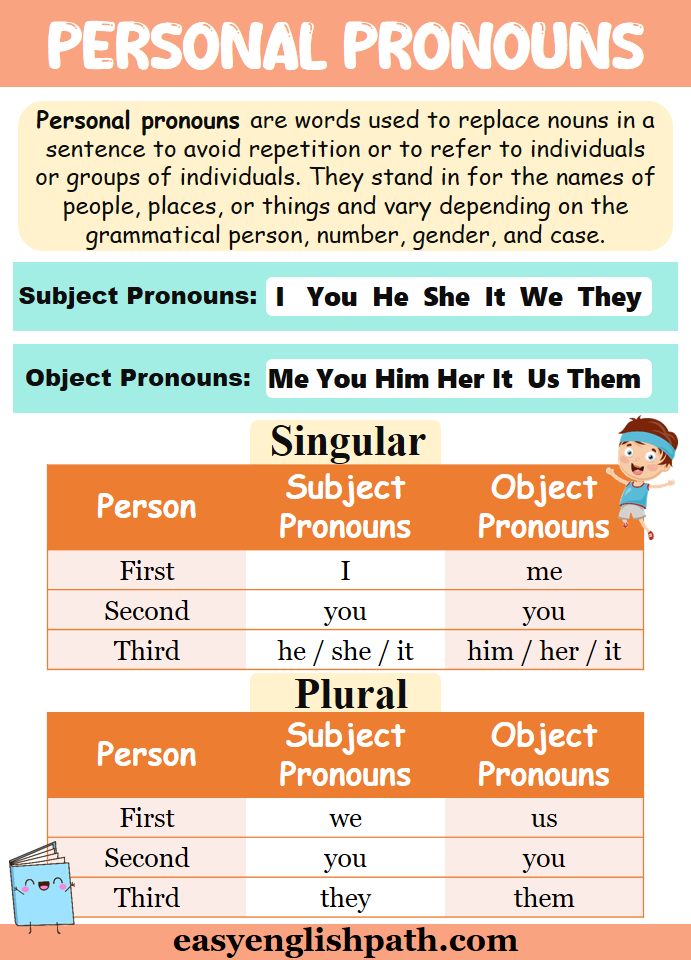Personal pronouns are words that we use to replace nouns in a sentence to avoid repetition. Words like I, you, he, she, and they are personal pronoun. They help us to talk about ourselves and other people without repeating names over and over. Personal pronouns can change depending on who or what we’re talking about. So, learning about them helps us a lot to talk better and understand each other more easily.
Personal Pronouns Definition:
Personal pronouns are a type of pronoun that we use to replace nouns referring to people or, in some languages, animals.
- She went to the store to buy groceries.
- We are going to the park later today.
- He gave me a book for my birthday.
Types of Personal Pronouns:
- Subject Pronouns
- Object Pronouns
- Possessive Pronouns
- Reflexive Pronouns
- Intensive Pronouns
- Demonstrative Pronouns
- Interrogative Pronouns
- Indefinite Pronouns
Subject Pronouns:
These pronouns are used as the subject of a sentence that is used to indicate who or what is acting.
- I am ready.
- You are next.
- He runs fast.
- She sings well.
Object Pronouns:
Object pronouns are used as the object of a verb or preposition, indicating the recipient of the action.
- She called him.
- We invited them.
- Can you help me?
Possessive Pronouns:
Possessive pronouns are used to indicate ownership or possession.
- This book is mine.
- Is this car yours?
- The decision is hers.
- The cat licked its paw.
Reflexive Pronouns:
Reflexive pronouns are used when the subject and the object of a sentence are the same.
- I made this cake myself.
- She taught herself to play the piano.
- They found themselves in a difficult situation.
Demonstrative Pronouns:
This type of pronoun helps us to indicate specific things or people and also indicates proximity in space or time.
- This is my favorite book.
- That was an amazing performance.
- These are delicious cookies.
Interrogative Pronouns:
Interrogative pronouns are used to ask questions and request information about people or things.
- Who is coming to the party tonight?
- What did you buy at the store?
- Which book do you recommend for beginners?
Indefinite Pronouns:
Indefinite pronouns are used to refer to nonspecific people or things.
- Some of the cake is missing.
- Many are interested in the job.
- All of us are invited to the party.
Intensive Pronouns:
Intensive pronouns are very similar to reflexive pronouns but we are used them to emphasize the noun or pronoun.
- She herself completed the entire project.
- They themselves organized the event.
- He himself fixed the broken door.






